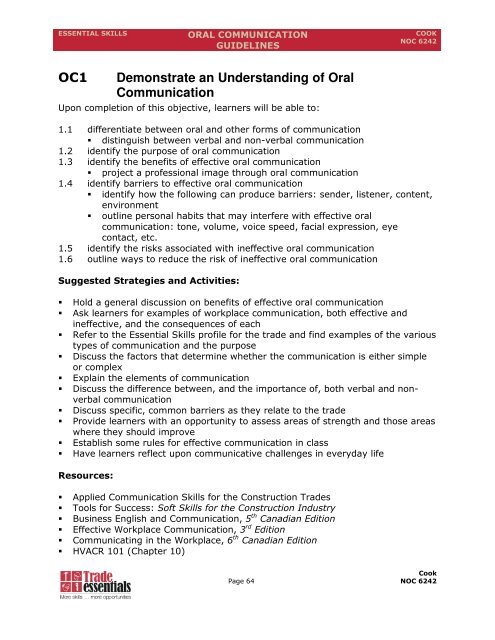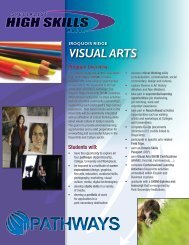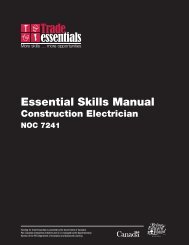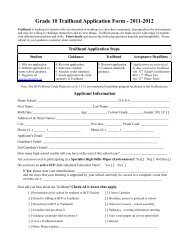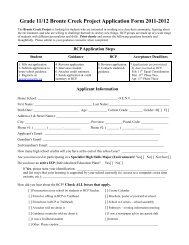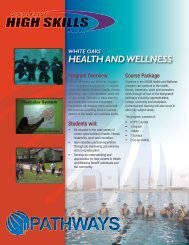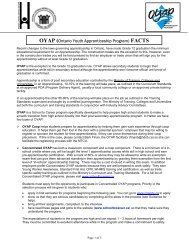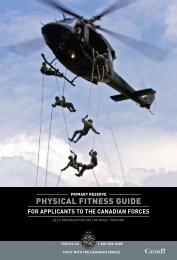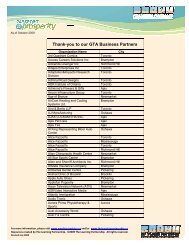Cook - Employer Registry
Cook - Employer Registry
Cook - Employer Registry
Create successful ePaper yourself
Turn your PDF publications into a flip-book with our unique Google optimized e-Paper software.
ESSENTIAL SKILLS<br />
ORAL COMMUNICATION<br />
GUIDELINES<br />
COOK<br />
NOC 6242<br />
OC1<br />
Demonstrate an Understanding of Oral<br />
Communication<br />
Upon completion of this objective, learners will be able to:<br />
1.1 differentiate between oral and other forms of communication<br />
distinguish between verbal and non-verbal communication<br />
1.2 identify the purpose of oral communication<br />
1.3 identify the benefits of effective oral communication<br />
project a professional image through oral communication<br />
1.4 identify barriers to effective oral communication<br />
identify how the following can produce barriers: sender, listener, content,<br />
environment<br />
outline personal habits that may interfere with effective oral<br />
communication: tone, volume, voice speed, facial expression, eye<br />
contact, etc.<br />
1.5 identify the risks associated with ineffective oral communication<br />
1.6 outline ways to reduce the risk of ineffective oral communication<br />
Suggested Strategies and Activities:<br />
<br />
<br />
<br />
<br />
<br />
<br />
<br />
<br />
<br />
<br />
Hold a general discussion on benefits of effective oral communication<br />
Ask learners for examples of workplace communication, both effective and<br />
ineffective, and the consequences of each<br />
Refer to the Essential Skills profile for the trade and find examples of the various<br />
types of communication and the purpose<br />
Discuss the factors that determine whether the communication is either simple<br />
or complex<br />
Explain the elements of communication<br />
Discuss the difference between, and the importance of, both verbal and nonverbal<br />
communication<br />
Discuss specific, common barriers as they relate to the trade<br />
Provide learners with an opportunity to assess areas of strength and those areas<br />
where they should improve<br />
Establish some rules for effective communication in class<br />
Have learners reflect upon communicative challenges in everyday life<br />
Resources:<br />
Applied Communication Skills for the Construction Trades<br />
Tools for Success: Soft Skills for the Construction Industry<br />
Business English and Communication, 5 th Canadian Edition<br />
Effective Workplace Communication, 3 rd Edition<br />
Communicating in the Workplace, 6 th Canadian Edition<br />
HVACR 101 (Chapter 10)<br />
Page 64<br />
<strong>Cook</strong><br />
NOC 6242


